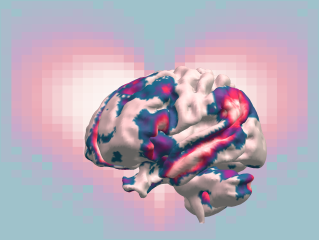Gambling is a common activity among the Canadian population. However, studies have indicated that certain groups may be more vulnerable to developing gambling problems. In this regard, LGBTQIA2S+ individuals have been identified as a high-risk population due to their higher prevalence of mental disorders and substance abuse compared to heterosexual and cisgender populations. Nonetheless, little research has focused on the gambling habits of this community within the Canadian context.
A recent study published in Addictive Behaviors analyzed problematic gambling behavior in a sample of 1,519 Canadian residents who identify as LGBTQIA2S+ and had gambled at least once in the past year. Through descriptive analysis and logistic regression models, the researchers identified factors associated with moderate-to-high-risk gambling in this population.
Key Findings of the Study
1. Prevalence of Problem Gambling
The study found that 19.6% of participants exhibited problematic gambling, defined as moderate-risk (9.7%) and high-risk (9.9%). Interestingly, there were no significant differences in the prevalence of problem gambling based on sex assigned at birth or gender identity.
However, the prevalence of problem gambling decreased with age, being highest among individuals aged 18 to 24 (25%) and lowest among those aged 65 and older (11%). Additionally, participants who identified as pansexual or queer had a lower risk of problem gambling compared to other sexual orientation groups.
2. Factors Associated with Problem Gambling
The logistic regression analysis revealed several factors that increased the likelihood of developing problem gambling:
- Gambling frequency: The more frequently participants engaged in gambling, the higher their risk of developing gambling-related issues.
- Type of gambling activities: Games with rapid reward responses, such as slot machines, video lottery machines, and poker, showed the highest prevalence of problem gambling.
- Presence of other addictions: Significant correlations were found between problem gambling and other addictive behaviors, such as problematic alcohol and cannabis use, excessive internet and video game use, and compulsive pornography viewing.
- Sociodemographic factors: Identifying as a racialized (non-White) individual, having a lower income, and possessing a lower educational level were associated with an increased risk of problem gambling.
3. Impact on Mental Health
Another significant finding was the relationship between problem gambling and mental health. Participants with higher scores on the PHQ-4 scale (indicative of depression and anxiety) were more likely to exhibit problem gambling. This suggests that gambling addiction may serve as a coping mechanism for stress and discrimination experienced by many LGBTQIA2S+ individuals.
Discussion and Conclusions
The study confirms that sociodemographic and mental health factors play a crucial role in the vulnerability to problem gambling within the LGBTQIA2S+ community in Canada. The intersection between sexual orientation, gender identity, and other social determinants of health appears to influence the risk of developing gambling addiction.
Specifically, the relationship between gambling frequency, participation in high-reward gambling activities, and co-occurring addictions highlights the need for tailored prevention and intervention strategies. It also underscores the importance of ensuring access to mental health services and harm reduction programs designed specifically for the LGBTQIA2S+ community.
Recommendations for Future Research and Policy
- Expand subgroup analysis within the LGBTQIA2S+ community: to identify specific factors influencing gambling risk for each group.
- Explore barriers to accessing support and mental health services: faced by LGBTQIA2S+ individuals with gambling problems.
- Develop inclusive and culturally sensitive prevention and treatment strategies: that consider the experiences of discrimination and social exclusion affecting this population.
This study represents a first step in understanding the impact of problem gambling in the LGBTQIA2S+ community in Canada, providing a foundation for future research and public policies aimed at reducing gambling-related harms in this vulnerable population.


